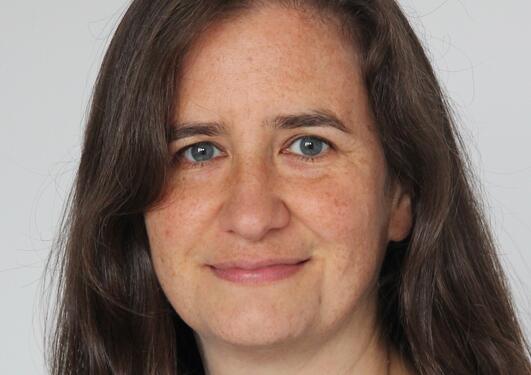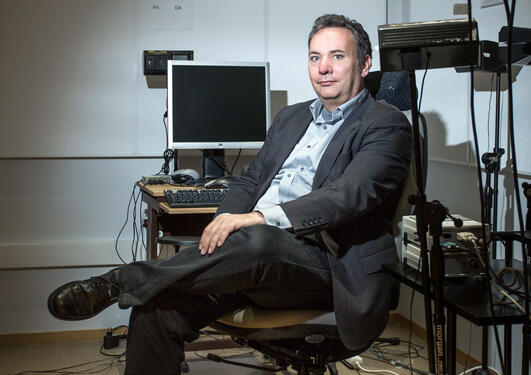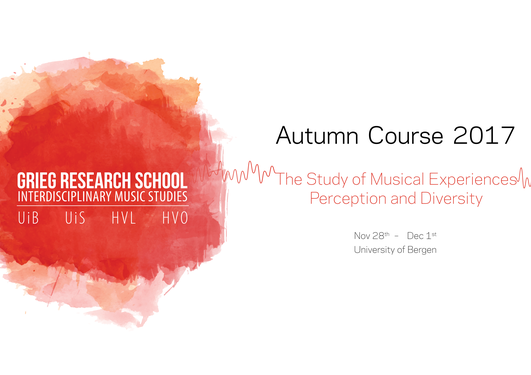Sven-Erik Holgersen
Perceptions of young children’s singing and Young children’s perception of singing
Hovedinnhold
For some time public interest in singing practices with young children has been growing. Many practitioners as well as researchers have expressed concerns about the state of singing especially in day care provisions (i.e. 1-6-year-old children) – and apparently for good reasons:
In Denmark the training of preschool teachers and music teachers for primary schools no longer emphasizes singing as a particular skill. The educational programmes do not include mandatory singing lessons or specific knowledge about singing with young children. Many day care provisions use a repertoire of less than 10 songs and often only few of the preschool teachers have the musical skills or confidence to lead the song.
Recent debate in Norway indicates that the situation is similar here, and since research – not least in Norway – give evidence for the values of singing, a reasonable assumption would be that neither policy nor practice is informed by scientific knowledge.
A lot of research has been done about children’s singing, e.g. about the development of singing skills, singing behaviour, singing as communication, song literacy, singing as a way to learn not only about music but about other aspects of human existence as well.
Recent research about children’s singing focus on topical themes such as well-being, health aspects of singing, social inclusion, and singing culture in day-care provisions.
One example of relevant research is that singing as a group activity may enhance social inclusion and in this way support children’s opportunities to be heard as individuals in a group. The relevance is emphasized by the fact that 2/3 of 6200 children 4-6 years of age answering a questionnaire tell that they experience too much noise in their institution. In other words, it is hard for the children to be heard and to hear each other.
In this presentation, I draw on research literature about various perceptions of children’s singing as well as children’s perception of singing as I address three questions:
- What are the implications of research in children’s singing (development) for singing practices with children?
- In which ways may singing activities be meaningful for children?
- How do singing practices affect children’s right to have a voice – literally as well as figuratively?
These questions are also related to ongoing research in which I am currently following a three-year development project, Sangglad[1] (Joyful singing) that was initiated in the autumn of 2017.
Key Questions
See above.
Recommended Reading
Welch, G.F. (2005). Singing as communication. In D. Miell, R. MacDonald, & D. Hargreaves (Eds), Musical Communication. (pp239-259) New York: Oxford University Press.
Holgersen, Sven-Erik (2006). Den kropslige vending. En fænomenologisk undersøgelse af musikalsk intersubjektivitet. In: Frede V. Nielsen og Siw Graabræk Nielsen (Red.) Nordisk Musikkpedagogisk Forskning Årbok 8 / Nordic Research in Music Education Yearbook Vol 8. NMH-publikasjoner 2006:1. Oslo: Norges musikkhøgskole.
Other preparation
Try to explore the notion of meaning related to singing e.g. as represented in Bonnàr, Lisa (2014). Life and Lullabies. Exploring the basis of meaningfulness in parents’ lullaby singing. NMH-publikasjoner 2014:2. Norwegian Academy of Music.
Biography
Associate Professor, PhD in music education, Danish School of Education, Aarhus University, Copenhagen. Head of the MA programme for Didactics Music Education, Director of the PhD programme for Didactics in Graduate School of Arts, Aarhus University.
Research interests: Music teaching and learning in early childhood and schools. Music teacher education. Comparative disciplinary didactics. Hermeneutic-phenomenological approach to music education.
Has previously served as chair of the Early Childhood Commission of ISME, co-founder of Music Educators and Researchers of Young Children (MERYC), and chair of the Nordic Network for Research in Music Education as well as (co-)editor of Nordic Research in Music Education Yearbook.
Selected publications:
- Holgersen, Sven-Erik, Bruun, Peter og Tjagvad, Mette (in press). Small Composers. In: Kenny, Albhei & Christophersen, Catharina. Musical Alterations. Routledge.
- Holgersen, Sven-Erik (2016). Læringsmålstyring eller dannelsesorientering. I: Krogh, Ellen og Holgersen, Sven-Erik (eds): CURSIV nr. 19. Sammenlignende Fagdidaktik 4. DPU. Aarhus Universitet.
- Holgersen, Sven-Erik and Holst, Finn (2013). Knowledge and Professionalism in Music Teacher Education. In: Georgii-Hemming, E., Burnard, P., and Holgersen, S.-E. (eds.) Pedagogical Knowledge in Music Teacher Education. Surrey: Ashgate Publishing Ltd.






